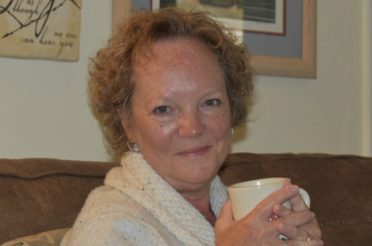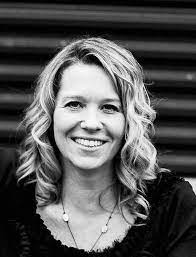By Roger Barbee
One advantage for me during the pandemic is that there is more time for reading. While it is true that I, as a retired person, did not have the pressures of a job and young family before the pandemic, there was time for outside activities, such as church and meals in restaurants. The pandemic has caused those activities and others to be curtailed, so more reading has filled the slot.
One day this past week, I decided to re-read A Month in the Country, the delightful and powerful novel by J.L. Carr. The author states in the foreword that he was trying to write “a rural idyll along the lines of Thomas Hardy’s Under the Greenwood Tree.” Carr accomplishes that and more in his story of Tom Birkin’s brief time in a remote Yorkshire village after the Great War as he restores a church painting depicting the apocalypse and his own re-healing seen through his eyes years hence.
In 2000 or so a fellow teacher recommended Carr’s short novel, and since then I have read it several times, given copies as gifts to fellow teachers and friends, and even owned a signed first edition. However, I gave that copy to my friend Druin who lives near Oxford, England. I had introduced Druin to Carr one summer while working in Pembroke College, and he is the one who pilfered my copy of The First Saturday in May, Carr’s nostalgic remembrance of a cricket match in 1936. Over the years, every time I mentioned First Saturday, Druin admitted his taking of the book while refusing to return it; so when my wife and I visited him and his family in 2010, I decided since he had one he might as well have the other, so I gave him my signed first edition of Month-one pilfered, one gifted.
Another friend that I shared Carr with was Joy, a lady and poet who I worked with at NCS for ten years. She was quite a literary person who enjoyed a strong poem, a well-crafted story, and chocolate. She was my best editor until her death, at age 90, in January 2020. (I often think that her death from heart failure was a foretelling of the dreadful year to follow.) Years ago I had introduced Joy and Druin via email and read many of their literary discussions with awe. One, a writer in Northwest DC and the other in Oxford, England, both sharing their delight in writers such as Carr and many more. Druin and I enjoyed Joy’s pleasure when she received, unannounced, a copy of Druin’s latest book, The Shape of Things to Come.
Now here I was removing the thin paperback from a bookshelf before I settled in to read a bit before the urge to nap took control. But I quickly became puzzled by what I saw on the insider page when I opened the book, However, the puzzlement soon evolved into a pleasing appreciation for life’s unannounced moments. In the upper right-hand corner was a pasted label with Joy’s full name and address. A neat, diagonal line crossed through the label and below it in Joy’s neat hand was written: “From Roger B. 2/14/01” but below that line was written: “To Roger B. 9/23/15.” I had given her this copy of Month not long after I had “discovered” it, and she returned it for some reason fourteen years later. I flipped through the book and noticed pencil highlights that I had made during some reading but stuck between pages 22 and 23 was a bright colored piece of paper on which Joy had written these words from the novel: “And, at such a time, for a few of us there will always be a tugging at the heart, knowing a precious moment gone and we not there.”
I am writing this on Christmas Eve afternoon and wondering at how good literature and good friends intertwine in our lives. This past year, such a difficult one that has been full of toil and trouble and death, is also the one of Joy’s death. But the lines she copied onto that sheet of paper tell much about her and all of us. James, the brother of Jesus, writes, “For what is your life? It is even a vapour, that appeareth for a little time, and then vanisheth away.”
I did not nap, but instead placed Joy’s copy of Month beside my signed copy of Carr’s What Hetty Did in the class bookcase.. No longer will the small paperback sit on the shelf for reading copies. Once in her last year, Joy told me that she was having too much fun living to die. That was all! No fear of death. No tugs of her heart. Just a recognition and appreciation for life’s “precious moments.”







